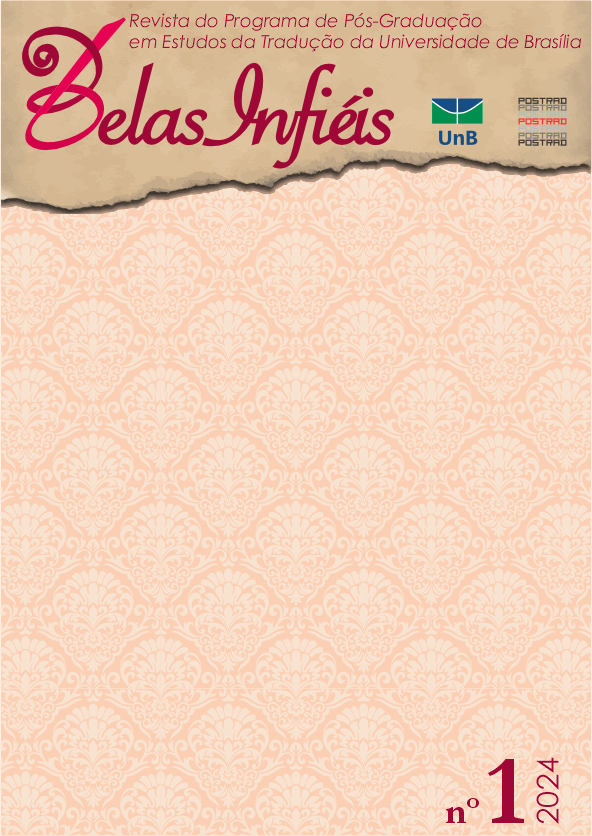A Translation of O. Henry’s “A Bird of Bagdad”
DOI:
https://doi.org/10.26512/belasinfieis.v13.n1.2024.51549Keywords:
O. Henry. Strictly Business. “A Bird of Bagdad”. Literary translation.Abstract
This article presents a translation of the short story “A Bird of Bagdad” (1910), by O. Henry, into Brazilian Portuguese. O. Henry became famous for writing about ordinary people, and with stories set in New York City. “A Bird of Bagdad” is representative of both O. Henry’s style and his New York theme. Originally published in the collection Strictly Business: More Stories of the Four Million (1910), the short story in question tells the story of the owner of a small restaurant who goes out at night in search of excitement — of strangers with fascinating stories to tell and to whom he can offer help. One day, while doing one of his walks, he meets a young man who needs to solve a riddle. The present translation is concerned with recreating the particularities of the characters’ speeches in dialogue, which play an important role in the humorous effect of the story, and the wordplay that makes up the riddle, a crucial element in the development of the plot.
References
Henry, O. (2000). A Bird of Bagdad. In O. Henry, Strictly Business. https://www.gutenberg.org/files/2141/2141-h/2141-h.htm
Sauer, P. (2019). The History of O. Henry’s “The Gift of the Magi”. Smithsonian Magazine. https://www.smithsonianmag.com/history/history-o-henrys-gift-magi-180973840/.
The Portal to Texas History. (n. d.). O. Henry Collection: About O. Henry. https://texashistory.unt.edu/explore/collections/OHENRY/.
Downloads
Published
Issue
Section
License
Copyright (c) 2024 CC BY

This work is licensed under a Creative Commons Attribution 4.0 International License.
Given the public access to this journal, the texts are free to use but requires the recognition of the original authorship and initial publication in this journal to be properly stated.
 The journal allows the use of works published for non-commercial purposes, including the right to submit the work to publicly accessible databases. Published contributions are the sole and exclusive responsibility of the author(s).Â



















